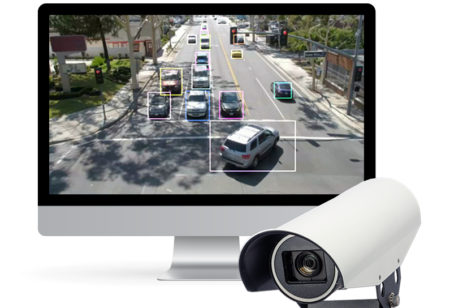At the ITS America Executive Forum, Internet of Things (IoT) ecosystems developer Terbine announced that it has successfully characterized and indexed open-source machine-generated data feeds from public agencies across the USA, and made them discoverable via a single, standardized interface.
Terbine is building the first global ecosystem for the seamless exchanging of machine-generated/IoT data. Over two years in development, the company’s IoT Data Exchange is capable of characterizing, categorizing, licensing, monetizing, tracking, and securitizing the flow of billions of IoT data feeds emanating from public agencies, academic sources and commercial entities. Designed to make use of key advances in artificial intelligence (AI), blockchain and edge computing, Terbine will scale with the growth in IoT data generation and solidify its usage within and between industries.
The ground-breaking company’s system gives users in transportation, insurance, financial services, energy and other industries one-stop access to thousands of machine-generated sensor feeds from city, county, state, federal, and academic sources. For users, the system dramatically speeds up the process of locating machine-generated data feeds, which are particularly valuable in AI-based applications. Terbine is entering into pilots and use-cases with insurers, hedge funds and other financial services organizations, AI developers seeking ‘training data’, and various industry groups including ITS America.
Terbine’s offering will dramatically speed up the process of locating and accessing IoT feeds in areas such as characterizing flows of vehicles and pedestrians, power generation and usage, air quality monitoring, microclimate data, and many others. The number of feeds is growing continually and will enable new levels of automation for smart cities, testing and deploying fleets of ground and aerial autonomous vehicles (AVs), new offerings in fintech and insurtech (financial and insurance technologies), and other applications.
“Many public agencies and universities offer their machine-generated data openly via the web, but there has been no standardized means to present the information. This leads to a cacophony of search results when seeking sources of physical-world data. In particular, this is a growing problem for training artificial intelligence-based traffic management and autonomous vehicles,” explained David Knight, Terbine’s founder and CEO. “We’ve solved it by corralling of all the feeds into one comprehensive system, and providing a uniform means to describe them. The result is that both human and AI users can discover what they require rapidly and with confidence in the source and known data quality, which is critical to the success of AI and robotic process automation.”
Benefits to Corporations and the Public Good Commercial organizations can join via subscriptions accessible via a web interface, or through Terbine’s APIs. In support of research and societal benefit, public agencies and bonafide not-for-profit research institutions are invited to use the Terbine system without an access fee, as well as to link their open source sensor data feeds into the ecosystem.




